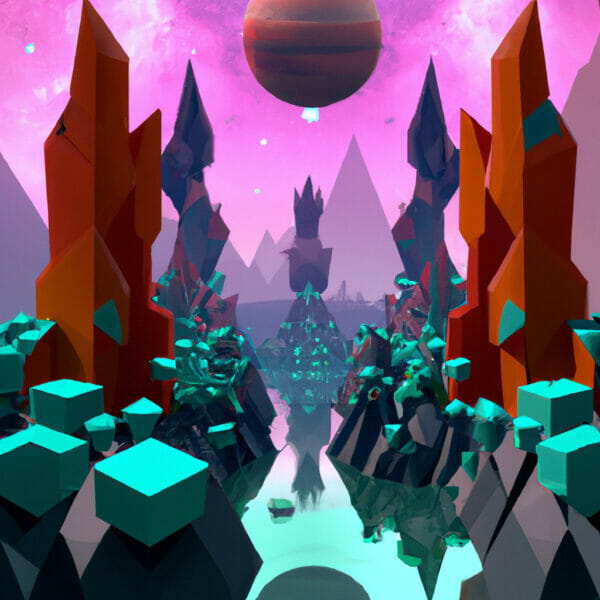There’s no doubt that almost everyone wants to learn Python programming – so should you?
Are you intrigued by the world of programming and the possibilities that it opens? Have you heard of Python but are unsure of how to dive into this language? Are you interested in making a game in Python or an automation? If so, our complete guide on “How to Learn Python Programming” is for you.
This guide will give you the straight facts on how to learn Python code, with useful information and even resources.
So, let’s learn Python programming together!
Table of contents
What is Python?
Before we learn Python programming itself, let’s talk about what Python is.
Python is an extensively used high-level programming language, prized for its readability and simplicity. Whether you are a student, a budding software developer, or even a veteran in the field, Python has a lot to offer. From building simple scripts to creating complex machine learning models, Python’s adaptability is part of the reason it’s widely used across domains such as web and game development, scientific computing, artificial intelligence, and data analysis.
As such, if you learn to code in Python, you’ll open up a ton of doors.
Why Learn Python Programming?
So, why should you learn Python programming in the first? Python has gained significant momentum in the tech world for several reasons:
- Easy to learn: Python boasts a simple syntax similar to English, making it one of the most beginner-friendly programming languages.
- Diverse applications: Python’s versatility allows it to be used in various platforms, from web and app development to data science and AI.
- High demand: Its growing popularity has resulted in a surge in demand for Python developers across numerous industries, making Python expertise a valuable asset in the job market.
- Strong community support: Python has a large, active community that continuously contributes to improving the language and creating innovative solutions.
So, whether you’re embarking on your coding journey or looking to expand your programming skills, Python presents an engaging, valuable, and highly useful endeavor.
Understanding the Key Concepts in Python
To efficiently navigate how to learn Python programming, a sound knowledge of certain key concepts is beneficial:
- Variables: Just as in algebra, variables in Python are used to store values, which could be numeric, text (string), or complex data structures.
- Data types: Python supports a variety of data types, such as integers, float (decimal numbers), string (text), and boolean (true or false).
- Control Flow: These are the statements that control how your code is executed. Examples are loops (like for and while) and conditionals (like if, else, elif).
- Functions and Modules: Functions are reusable chunks of code. Modules, on the other hand, are files containing related functions and other definitions.
- Exception Handling: Exceptions are events that can modify the flow of control through your program. Exception handling is essential to prevent your program from crashing when an error occurs.
By grasping these concepts, you’ll lay the foundation needed to tap into Python’s full potential and explore the more complex areas such as object-oriented programming, modules, and decorators.
How to get started with Python Programming
Diving into Python programming is a journey packed full of exciting discoveries. Here’s a general roadmap to guide you for how to learn Python programming (we’ll get more in-depth later):
- Understand the basics: Start by familiarizing yourself with Python’s syntax and key concepts like variables, data types, and control flow.
- Practice coding: Consistent practice is critical to mastering any skill, programming included. Write code every day, start with simple tasks and gradually take on more complex projects.
- Work on a project: Once you’ve mastered the basics, apply your skills in a real-life scenario by initiating a Python project. This could be a game, a web application, or even a data analysis task.
- Join the community: Being part of the Python community can offer invaluable learning experiences and a network of support. Engage with other Python learners and experienced coders to enhance your learning.
Navigating Python with Zenva’s Python Mini-Degree
To guide you through mastering Python, we at Zenva provide an exemplary resource – the Python Mini-Degree. Designed with beginners in mind, our Python Mini-Degree provides a comprehensive, project-based course where you will learn by doing.
Our program breaks down complex programming concepts into easily digestible chunks, supplemented with real-world exercises and expert-led tutorials. By the end of this program, you’ll have numerous projects under your belt, giving you the confidence and practical experience to tackle larger, more complex problems with Python. You’ll even learn about coding a game in Python if that’s something you’re interested in.
Are you ready to kickstart your exciting journey of Python programming? Join our Python Mini-Degree program, and you’ll be combining lines of code into beautiful programs in no time!
Learning Resources
Zenva and GameDev Academy have a selection of remarkable resources designed to help you learn Python programming in an interactive and efficient manner. Each resource covers different aspects of Python programming offering a unique learning experience to beginners and experienced learners alike.
Python Mini-Degree from Zenva Academy
The Python Mini-Degree from Zenva Academy provides a comprehensive curriculum, guiding you through various aspects of Python programming. Highlights of the course include:
- A thorough coverage of topics – from coding basics, through algorithms and object-oriented programming, to game and app development.
- A project-based approach where students learn by creating games, algorithms, and real-world apps.
- Flexibility in access with round-the-clock availability of course materials, allowing students to learn at their own pace.
- Certified instructors with significant industry experience.
Python 101: Introduction to Programming from Zenva Academy
As a perfect starting point for Python beginners, Python 101: Introduction to Programming course covers the basics of Python programming. Key features of this course include:
- Introducing Python’s versatility through applications in data science and machine learning.
- Ample opportunities for practice with video lessons, quizzes, and interactive coding exercises.
- An inclusive approach, designed for beginners but offering challenges for experienced learners.
Generative AI Coding Academy from Zenva Academy
The Generative AI Coding Academy offers a comprehensive insight into Python and generative AI development, equipping learners with skills to build AI applications. Highlights of the Academy include:
- Creating projects such as a medical diagnosis bot, an article summarization bot, and a web-based education bot.
- Flexible learning materials suitable for beginners and experienced learners alike.
- An in-depth understanding of AI concepts.
Machine Learning Mini-Degree from Zenva Academy
With Machine Learning Mini-Degree, learners can gain comprehensive training in machine learning using Python. Key aspects of the course include:
- A curriculum complete with real projects like image identification, text generation, and spam detection.
- Interactive lessons, coding challenges, and quizzes to enhance learning.
- Flexible format, making the course accessible on all devices.
Data Science Mini-Degree from Zenva Academy
The Data Science Mini-Degree teaches data science using Python, a popular tool in the field. Key features of this program include:
- Comprehensive coverage of Python topics relevant to data science.
- Inclusion of projects to build a portfolio of data science work.
- High-quality courses taught by experienced instructors and offering flexible learning options.
Python for Educators from GameDev Academy
The Python for Educators course on GameDev Academy covers the basics of coding with Python using the Turtle library, ideal for teachers of grades 3-12. Special features of this course include:
- Learning topics such as drawing and changing shapes, defining and designing algorithms, and implementing them through programming.
- Application of skills learned can be used in any Python project.
Object-Oriented Programming (OOP) with Python from GameDev Academy
The OOP with Python course on GameDev Academy offers a focus on using Python for game development. Highlights of this course include:
- An introduction to OOP principles and creating classes and objects in Python.
- A foundation for pursuing interactive projects with responsible coding habits.
Additional Learning Resources
There is a range of Python resources across the internet that can help further learn Python programming, from beginner courses to intricate documentation. A few of these resources include:
Python Documentation
The Python Documentation provides a comprehensive guide on various topics related to Python, making it a valuable resource for learners. While it won’t teach you how to learn to code in Python in the same way, it will be invaluable.
Google’s Python Class
Google’s Python Class is a free online course designed for individuals with some programming experience who want to polish their Python skills.
Python for Beginners
Provided by Microsoft Learn, “Python for Beginners” teaches how to create programs and projects in Python in a step-by-step process.
Learn Python Programming Wrap-Up
Thanks for sticking with us as we explored how to learn Python programming.
The world of Python programming is vast and filled with opportunities. With its simplicity and versatility, it opens up a multitude of doors for developers and learners, offering them a chance to create, innovate, and transform the digital world. Whether you wish to automate repetitive tasks, delve into the world of data science, or build immersive games or web applications, Python can be your perfect partner on this journey.
The path to mastery might seem challenging, but with the right resources, constant practice, and an unwavering spirit, you will earn the expertise you desire. Remember, the most beautiful algorithms are yet to be written, the most effective AI-driven applications are yet to be developed, and the most insightful data patterns are yet to be discovered. With Python, you could be the one crafting these revolutionary coding stories.
As a concluding note, let’s circle back to our Python Mini-Degree. The rich, learner-friendly content structure and project-based learning approach create a powerful synergy that simplifies and enlivens your Python learning journey. It equips you with the skills and confidence to face the real-world Python programming scenarios. It really can’t be beat if you want to learn Python programming.
So, don’t miss out on this chance to harness the power of Python and catapult your learning trajectory to greater heights. Keep growing, keep coding, and remember – every line of code gets you closer to your goals.
Did you come across any errors in this tutorial? Please let us know by completing this form and we’ll look into it!

FINAL DAYS: Unlock coding courses in Unity, Godot, Unreal, Python and more.







